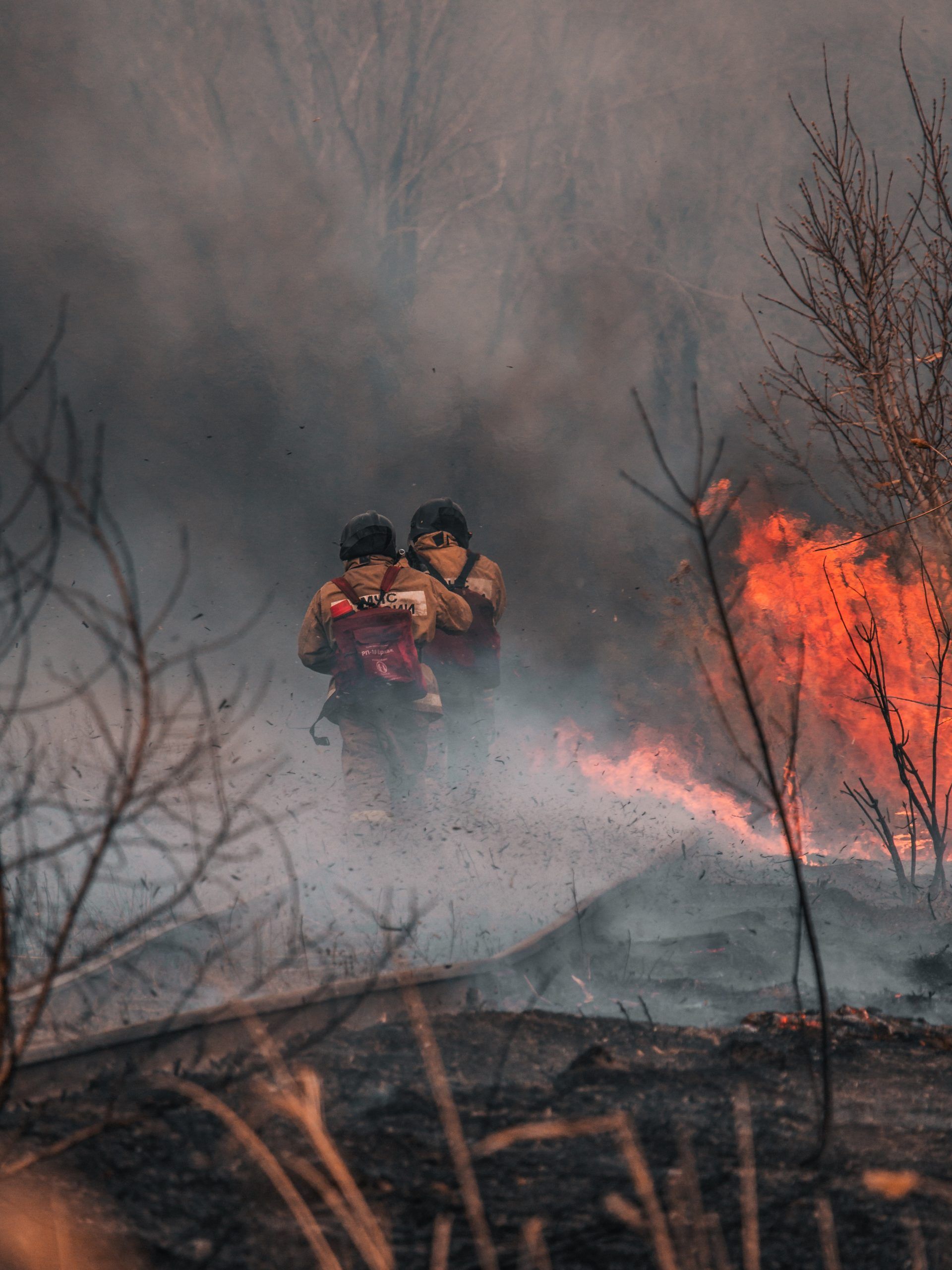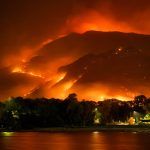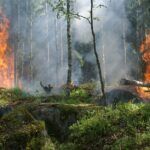Today, the Commission’s Joint Research Centre (JRC) published the latest edition of its Annual Report on Forest Fires in Europe, the Middle East and North Africa in 2021. It concludes that last year’s fire season was the second worst in the EU territory in terms of burnt area (since records began in 2006), after 2017 when over 10,000 km² had burnt. More than 5,500 km² of land burnt in 2021 – more than twice the size of Luxembourg – with over 1,000 km² burnt within protected Natura 2000 areas, the EU’s reservoir of biodiversity.
The report does not yet cover this year’s fires, which have been even more destructive than the ones in 2021. The annual reports allow having past fire seasons as a reference when analysing preliminary data on the impact of wildfires in the current year. With this perspective, 2022 is looking even worse, confirming the worrying destructive trend of recent years. In fact, an area covering 8,600 km² already burnt this year. This is one of the largest area scorched by wildfires in Europe by the end of October, setting new burnt records in nine EU countries. In total, since the worst fire season on records in 2017, 35,340 km² – an area larger than Belgium – have been scorched by wildfires. About 35% of the total area burnt, more than 11,600 km², was in the Natura 2000 network area.
Although the area burnt by wildfires has been remarkably extensive in 2022, the number of human casualties has been contained thanks to prevention measures implemented by EU Member States and the EU Civil Protection Mechanism (UCPM). In 2021, the EU further strengthened this mechanism’s capacity by increasing aerial firefighting means to assist countries during that fire season. This support was extensively used during the fires that hit the Mediterranean region in 2021 and in 2022. This stronger capacity is coordinated by the Emergency Response Coordination Centre of the European Civil Protection and Humanitarian Office. The Joint Research Centre offers support by providing timely information on fires in progress, helping to deploy EU-funded aerial means where they are most needed.

Forest fires: €170 million to reinforce rescEU fleet
|
Key findings of the report
- In 2021, fires were mapped in 22 of the EU27 Member States, burning 500,566 hectares (ha) in total, more than the approximate 340,000 ha of 2020 but far from 1 million ha of 2017;
- The 2021 report on forest fires shows that Italy was the most affected country in terms of burnt area, followed by Türkiye, Portugal and Greece, especially in August, as highlighted by national reporting;
- Wildfires severely affected Europe’s Natura 2000 protected sites: the total area burned in 2021 was 102,598 ha (about 20% of the total area of all Natura 2000 sites), less than the last two years and slightly below the average of the last 10 years;
- In 2021, Italy accounted for almost a quarter of the total area burned within Natura 2000 sites, followed closely by Spain, which together accounted for 45% of the total area;
- In southern EU countries with longer recording periods, burnt areas doubled compared to 2020 and it was the second worst year since 1986 in terms of average fires size. The total number of fires was the lowest recorded, meaning that there were far fewer but larger fires;
- The EU Civil Protection Mechanism was upgraded with rescEU in 2019, further strengthening its capacity to assist countries during this fire season in 2021 and further extended in 2022 for the 2023 fire campaign.
- This year alone, the EU Civil Protection Mechanism was activated 11 times by six countries requesting planes, helicopters and firefighters: it is the second year with more requests to the UCPM over the last decade.
Background
The Joint Research Centre supports the work of the Commission’s Emergency Response Coordination Centre through the development of decision support systems that provide an insight and forecast for all the ongoing fires in the EU, allowing for informed allocation and distribution of RescEU firefighting means across EuropIn close collaboration with the Expert Group on Forest Fires (EGFF), EFFIS provides continuous monitoring from satellites of the fire situation in Europe and the Mediterranean area. EFFIS has been used by government organisations and citizens, with over 414,000 users from 197 countries in 2021. EFFIS is also complemented by the Global Wildfire Information System (GWIS), which extends monitoring to the entire globe.
The JRC forest fire reports provide harmonised information and assessment of forest fires’ effects in the pan-European region. They give detailed information on the actions taken in the countries as regards wildfire prevention, preparedness and firefighting, while addressing adaptation measures to mitigate wildfire effects. Forest fires reports are published regularly in October of the year following the fire season finally assessed, preceded by an advance report in March. The final forest fire reports include information gathered at national level, shared during the year with the JRC for data comparison and comprehensive final overview of the fire season in Europe, Middle East and North Africa. The 2021 edition is the result of a successful collaboration between the European Commission services and fire management agencies in 34 countries.
At policy level, the EU is continuing to work on measures to mitigate the unavoidable impact of wildfires, publishing the EU Strategy on Adaptation to Climate Change in March 2021. The European Green Deal includes an ambitious agenda on sustainable climate change adaptation and in March 2021, the Commission adopted the EU Strategy on Adaptation to Climate Change, which underlines that adaptation needs to become faster, smarter and more systemic. The EU Forest Strategy for 2030, published in July 2021, is also setting the basis for increased fire prevention and climate resilience of forests, building on the guidelines for prevention of wildfires that call for managing vegetation and avoiding the accumulation of fuels on the ground to facilitate firefighting. The Nature Restoration Law proposal that the Commission presented just before the summer is a key tool for adaptation and mitigation efforts as nature lessens the impact of natural disasters such as floods, droughts and heat waves.
Source: European Commission







Leave a Reply